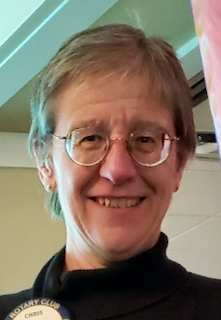By Chris Spangler
Passersby might have noticed the “No Mow May” sign in the sideyard of my Monroe Street home. And many might have thought to themselves, “what else is new?”
OK, so I haven’t been the most “regular” at mowing or weeding in recent years. But I have a good excuse this spring: Pete and I are participating in a pollinator-friendly initiative called “No Mow May.”
At the request of the community nonprofit Heart of the City, the Fort Atkinson City Council approved a temporary exception to the ordinance requiring that all grass be kept below a maximum of eight inches. Note that this is for May only, and applies solely to backyards.
“No Mow May” is designed to educate people about lawncare practices that improve pollinator habitat, soil and air quality by planting native plants, reducing or eliminating the use of pesticides and mowing grass less frequently, as well as at a higher length.
The benefits are obvious: Longer grass roots add more nutrients to the soil and help retain water. Mowing less frequently improves air quality by using less oil and gasoline. And not killing dandelions and other such plants as soon as they pop up is a huge boost to our spring pollinators such as bees.
Need proof?
In 2019, Plantlife — a wild plant conservation charity — asked citizen scientists across the United Kingdom to participate in “Every Flower Counts.” The result: Eighty percent of participating lawns supported about 400 bees a day and 20 percent, up to 4,000 bees a day!
Closer to home, in one week of a “No Mow May” initiative in Appleton last year, a sampling of participating lawns showed a fivefold increase in bee abundance and a threefold increase in bee diversity compared to nearby parkland that was mowed regularly.
The fact is that bees, birds, bats, butterflies, beetles and other small mammals that pollinate plants are responsible for one out of every three bites of food we eat. They produce natural resources by helping plants reproduce. At least 30 percent of the world’s crops and 90 percent of all plants require cross-pollination to spread and thrive, and bees are our most important pollinators.
Unfortunately, their population has been on the decline. Climate change causes some flowers to bloom earlier or later than usual, leaving bees with fewer food sources at the start of the season. Bees suffer habitat loss from development, abandoned farms, and the lack of bee-friendly flowers. Some colonies collapse due to plants and seeds treated with pesticides, or harmful parasites like mites.
That’s why efforts such as “No Mow May” are so very important … not just to the bees, but to all of us who eat.
It’s not too late join in by visiting heartofthecity.us. Or if you’d rather participate unofficially, then simply put the mower in the garage for a week or two.
And next time you pass my house and see the unkept lawn this month, please remember:
I’m being a responsible homeowner … not a lazy one!
Chris Spangler is the former managing editor of the Daily Jefferson County Union in Fort Atkinson. She is a contributor and an editorial consultant for FortAtkinsonOnline.com.

Chris Spangler
This post has already been read 1874 times!
AMEN AND HALLELUJAH FOR THE BEES. THX CHRIS. …….RADIO RON
Excellent! Many thanks. I have new details about bees to share.